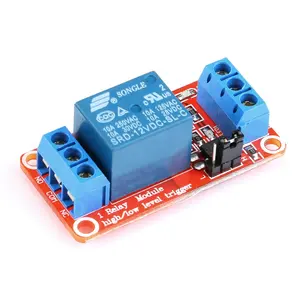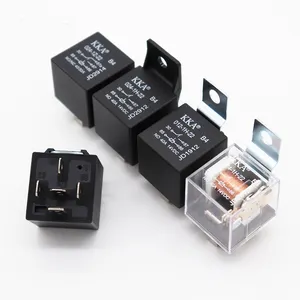Introduction to 12V 240V Relay
The 12V 240V relay is an essential component in various electronic and electrical applications. Designed to control high-voltage circuits with a low-voltage signal, these relays enable safer, more efficient operations in systems ranging from automotive environments to industrial machinery. Understanding the functionality, types, features, and advantages of 12V 240V relays is crucial for anyone involved in electrical engineering or DIY projects.
Types of 12V 240V Relays
There are several types of 12V 240V relays available, each suited for specific applications and needs. Here are the most common types:
- Electromechanical Relays (EMR):
- Utilizes electromagnetic coils to operate switches.
- Common in applications requiring isolation between control and high-voltage circuits.
- Solid State Relays (SSR):
- Uses semiconductor devices to perform switching functions.
- Offers faster switching speeds and longer life without mechanical wear.
- Miniature Relays:
- Compact and lightweight for tight spaces.
- Ideal for applications where space is a constraint.
- Automotive Relays:
- Specifically designed for vehicle applications.
- Handles high currents for components like headlights, horns, and fuel pumps.
Function, Feature, and Design of 12V 240V Relays
The function and features of the 12V 240V relay play crucial roles in their efficacy. Here are some important aspects to consider:
- Control Mechanism:
- Operated by a low-wattage input to control high-power loads.
- Provides seamless on/off control of various devices.
- Electrical Ratings:
- Designed to handle up to 240V AC or DC, ensuring compatibility with standard household and industrial voltages.
- Various current ratings available, typically ranging from 5A to 40A.
- Pin Configurations:
- Available in multiple pin configurations for easy integration into different circuits.
- Standardized designs facilitate ease of replacement and upgrades.
Advantages of Using 12V 240V Relays
Utilizing 12V 240V relays offers numerous benefits in both professional and home environments:
- Safety:
- Provides electrical isolation, thus protecting low-voltage components from high-voltage spikes.
- Efficiency:
- Reduces energy consumption by allowing devices to activate only when necessary.
- Versatility:
- Suitable for a broad range of applications, including automotive, HVAC systems, and home automation.
- Durability:
- Solid-state options boast longer service life and minimal maintenance needs.








































